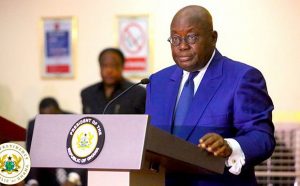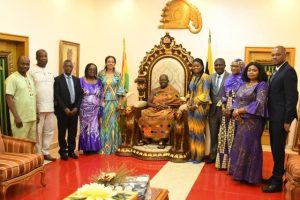The reduction in the Communication Service Tax (CST), which took effect on Tuesday, September 15 has received mixed reactions from mobile network consumers.
The reduction of the tax, from nine to five percent, as promised by the government, was done to support Ghanaians during these times of COVID-19.
Citi Business News, in an interaction with some consumers in Accra on their views about the tax reduction, showed that the development had been generally welcomed, although many were still calling for further reductions in the tax.
Albert Acquah, who seemed unbothered about the reduction noted, “I heard it [the CST] has been reduced but I am yet to buy credit to see whether it is true or not. Normally, I don’t even take notice of how fast I use credit. I just buy it. When it finishes, I’ll just buy another one.”
“If you buy GHS10 airtime, you’ll think it could last for about a month, but it will be exhausted within four to five days. The government has to do something about it. They should reduce the CST from five to three percent so we can all feel comfortable using the credit,” FK Jonathan lamented.
Some consumers, on the contrary, seemed elated with the new percent of talk tax.
Nene Emmanuel who had experienced a change in the duration of calls, said: “I’ve made a few calls and it seems the cost has reduced a bit. I made about an hour-long call and it cost me about 20 percent less from what I used to pay. I think it’s quite impressive. I’ll keep monitoring to see if it remains like that but so far, it’s been good.”
Salamatu Ousmane also said, “I feel happy about it because we can use it for many things like browsing, learning, and making calls for longer hours or minutes.”
On their part, the Ghana Chamber of Telecommunications, the organisation under which mobile network operators fall, gave a breakdown of how the new talk tax will be implemented.
“With some of the operators, if you’ve bought your GHS10 scratch card, when you reload, apart from the GHS10 that you bought, you’ll see that four percent CST as an additional value. But for some of the operators, what would happen is that in the past, if you bought your GHS10 scratch card, the nine percent CST would have resulted in you getting GHS7.78 as the value that you then had to buy your communication service. But now with the CST reduced to five percent, you’ll get GHS8.01 as the value that you’ll use to buy your communication service,” said the CEO of the Chamber, Ken Ashigbey.
He continued, “So in whatever way in which your telecommunications providers do it, if you kept your GHS10 as what you were spending before this happened, you were going to get more value or if you wanted to keep the value you were getting, then you were going to pay less and that difference is going to be paid on the four percent tax that government has taken off communication services.”
Mr. Ashigbey further disclosed to Citi Business News how far the new tax will go to benefit the telcos and consumers in general.
“We believe that generally for us an in industry, all other things being equal, this should generate a lot more demand for our products. Also for the consumers, we would have a lot more affordable access to data and voice bundles so that we would be able to put it to productive use to turn the wheels of the economy a bit faster to aid the recovery from the surge of COVID-19. Our ask of government is that going forward, we should get to a a point where CST will completely be taken off.”
Mobile telecommunication companies in Ghana in October 2019, began to charge consumers a nine percent deduction on recharges made as communication service tax, also known as talk tax.
This was after the Finance Minister, Ken Ofori-Atta, in his 2019 mid-year budget review announced an increase in the tax from six to nine percent.
Following the increment, the telcos introduced an instant deduction of the tax which sparked up a lot of complaints and arguments from Ghanaians.
But after several debates among stakeholders, the telcos resolved to stop the upfront deductions of the tax and rather applied the tax through a tariff adjustment program.
A year on, and the Finance Minister announced a reduction in the talk tax from nine to five percent to ease the plight of Ghanaians during the coronavirus pandemic.
Source: Citinewsroom.com







